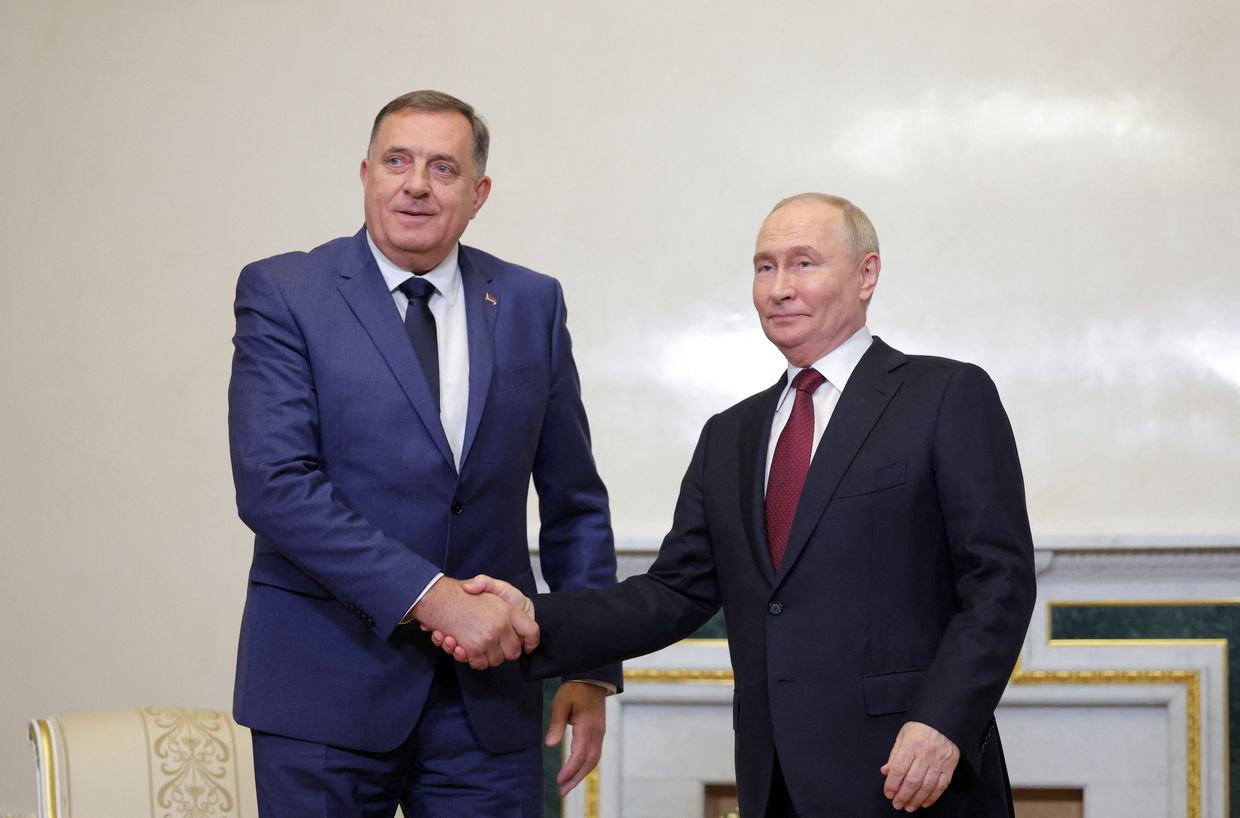
Bosnia on the Brink: Dodik’s Defiance Risks Peace in the Balkans
Right now, Bosnia and Herzegovina is facing its most dangerous political moment since the end of the war in 1995. At the heart of the crisis is Milorad Dodik, the president of Republika Srpska — the Serb-dominated entity within Bosnia — who has defied both domestic law and international authority in an escalating standoff that could fracture the fragile peace holding the country together.
Earlier this year, Dodik was convicted for openly disregarding the authority of the international high representative — a position created under the Dayton Peace Accords to uphold Bosnia’s constitution. He was sentenced to a year in prison and banned from holding office for six years. But instead of stepping down, he doubled down. He dismissed the verdict as illegitimate, refused to acknowledge the court's authority, and even pushed local laws that banned national police and judicial authorities from operating on Republika Srpska territory.
And while Sarajevo hoped the conviction would mark the end of Dodik’s political career, the opposite has happened. He’s still in power, bolstered by his alliance with Russian President Vladimir Putin and the political backing of Hungarian Prime Minister Viktor Orbán. Dodik has visited Moscow multiple times this year alone, portraying himself as a protector of Serb nationalism and an ally of Putin’s vision for a divided Europe.
Also Read:- Glenn Greenwald Faces Sex Tape Leak with Defiance and Clarity
- Remembering Loretta Swit: A Farewell to MAS*H’s Beloved “Hot Lips”
In April, there was an attempt to arrest him. State police tried to detain Dodik but were blocked by Republika Srpska's own forces in a tense showdown. It’s clear — he is not going quietly. In fact, reports suggest that Hungarian paramilitaries had even entered Banja Luka in civilian clothes, ready to assist Dodik in case of a rapid escape, a scenario that underscores just how volatile things have become.
The broader concern here is not just about one man clinging to power — it’s about the structural failure of Bosnia’s post-war system. The Dayton Accords may have ended the bloodshed, but they also froze ethnic divisions in place. For three decades, the country has functioned as a patchwork of conflicting nationalist agendas, and Dodik has mastered the art of exploiting that weakness. He’s blocked reforms, threatened secession, and now, openly challenges the international community.
The fear isn’t just a return to war — it’s the possibility of Bosnia becoming another proxy battleground, where foreign powers like Russia use ethnic tensions to destabilize Europe from within. This is happening while Western attention is elsewhere, especially focused on Ukraine. But let’s not forget: the Balkans have long been Europe’s powder keg, and history shows that ignoring warning signs here can be catastrophic.
As Bosnia’s political future hangs in the balance, the next few months will be critical. If the appeal against Dodik’s conviction is rejected, new elections could shift the power dynamics — or spark an even more dangerous showdown. For now, all eyes are on whether Dodik steps down peacefully or continues to dig in, protected by paramilitaries and propaganda.
Bosnia is at a turning point. It’s not just a local crisis — it’s a test of whether peace, law, and diplomacy can withstand the force of ethnic extremism backed by global powers.
Read More:



0 Comments